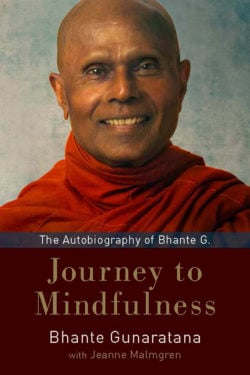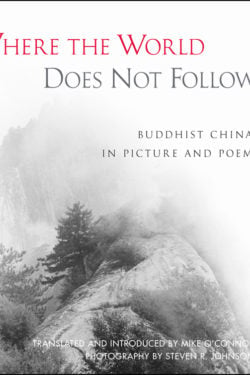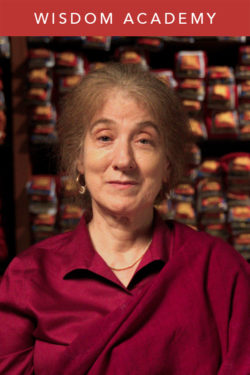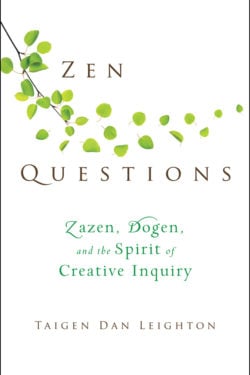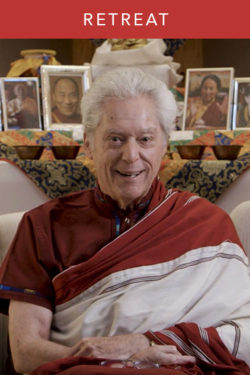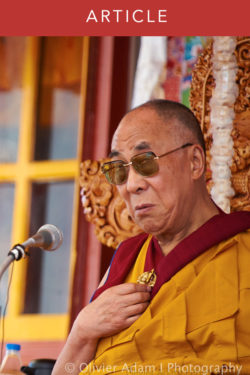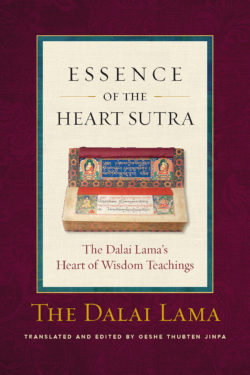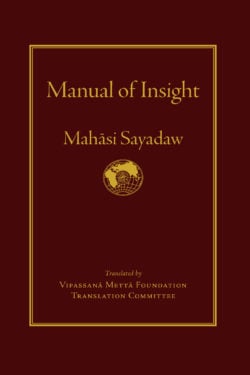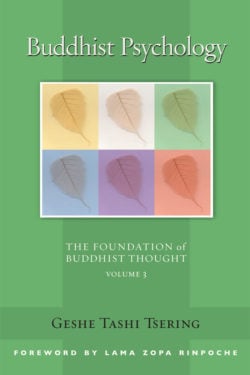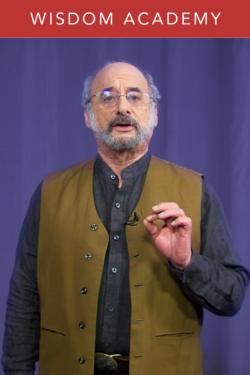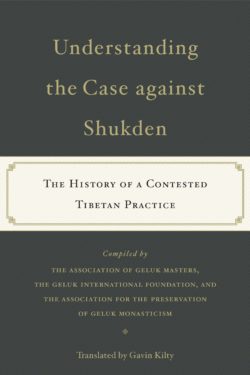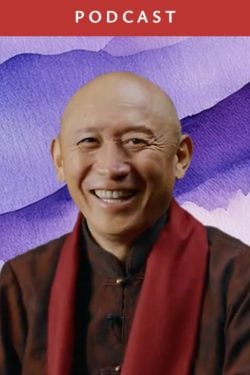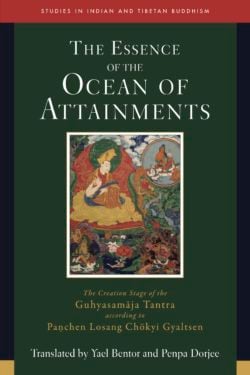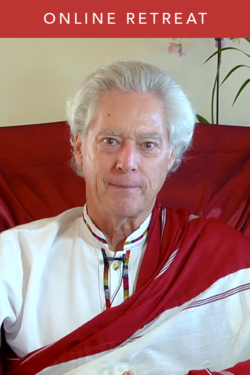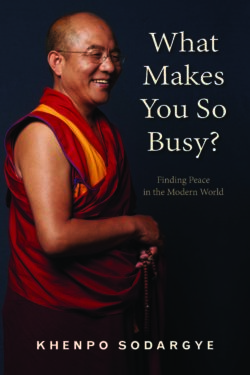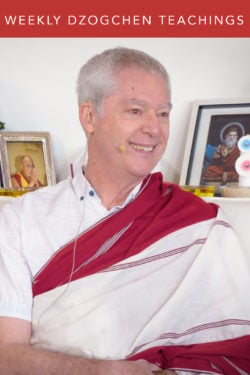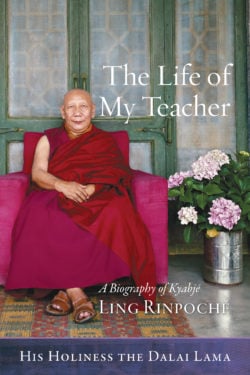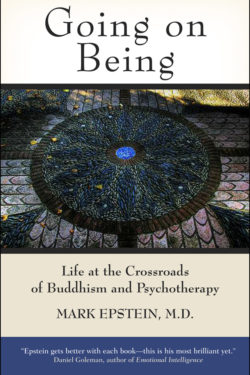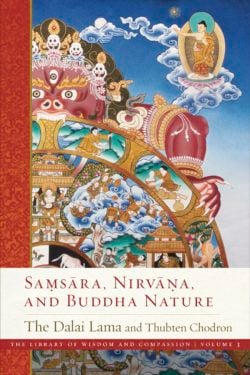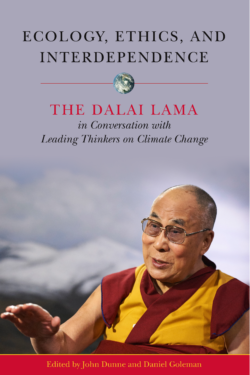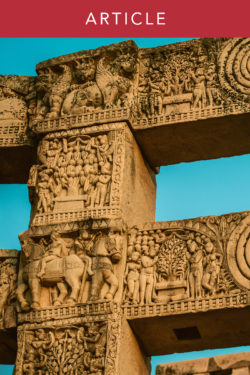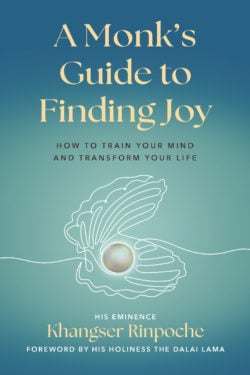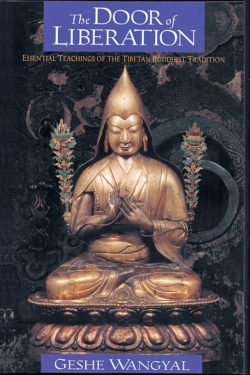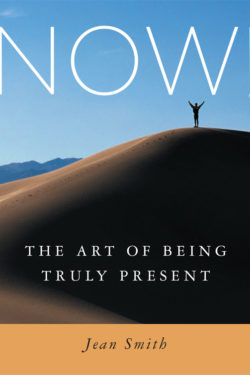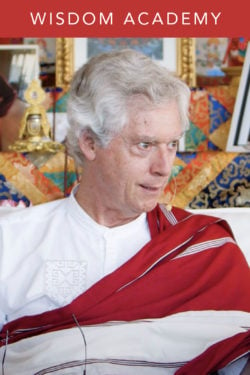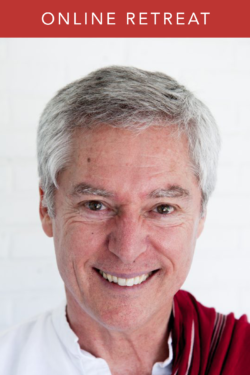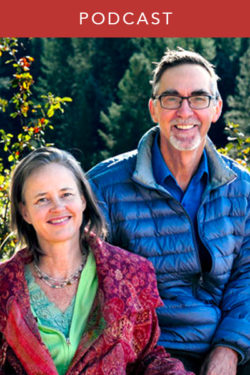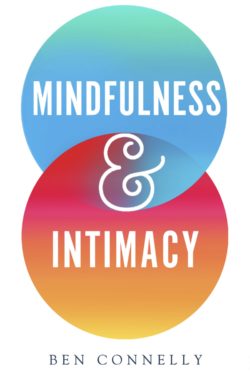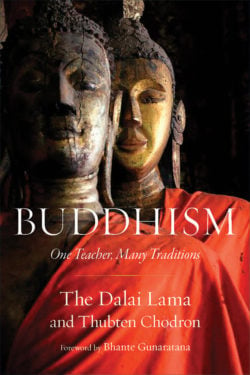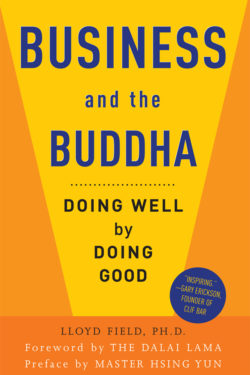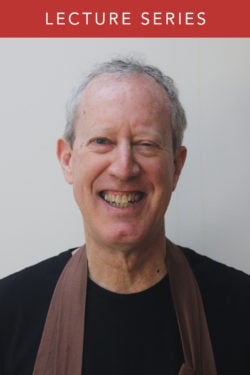’s Library
You haven’t added any items to your library yet. Click the plus sign on any item throughout Wisdom Experience to start building your library.
’s Wisdom Academy Courses
You are not enrolled in any courses yet.
For You
Journey to Mindfulness
Bhante Gunaratana—Bhante G., as he is affectionately called—is one of the most beloved Buddhist teachers in the West.
This expanded anniversary edition of Journey to Mindfulness includes five new chapters in which Bhante G. reflects on the impact of the tsunami that struck his homeland in 2004 and his subsequent appearance on the Larry King Show, his brief experiment in ordaining nuns at his monastery, as well as intimate reflections on the loss of family members, and his own aging and infirmity. He provides an inspiring example of what it means to live a life in alignment with the Buddhadharma.
“Like the stories of the wisest and kindest of grandfathers. A joy to read.”—Sylvia Boorstein, author of Pay Attention for Goodness’ Sake
“Tremendously inspiring. It both breaks down illusions and over-idealism about Buddhism and gives a vision of how to attain the highest in our lifetimes. An old, humble monk reflecting on his arrogant youth has invaluable lessons for all of us.”—Sumi Loundon, author of Sitting Together
Inspirational, charming, and delightfully accessible—we are left with the image of a good man who has lived an extraordinary life, and that this kind of life is within reach of all of us.”—Branches of Light
“This plain-English look back at years of an a mixture of adversity, humility, and hard-won wisdom tells an engaging story that non-Buddhists can appreciate as well as Buddhists.”—Publishers Weekly
Where the World Does Not Follow
Gorgeous and unique, Where the World Does Not Follow captures an almost-hidden China. Acclaimed translator Mike O’Connor and photographer Steven Johnson uncover a world rarely seen by outsiders—even as they capture it in its everyday beauty. O’Connor’s translations of poems from China’s Tang Dynasty sing in the present day, while Johnson’s photographs reveal a modern-day China that seems almost unchanged by the passing of centuries.
Chinese authorities are only now allowing access to ancient Buddhist sites and many writings and devotional objects are being made available for the first time in decades. These poems written by Zen and Taoist hermit-sages, together with the crisp yet almost dreamlike images capture the aesthetic, literary, and spiritual roots of Buddhist China. Where the World Does Not Follow provides insight into a world that very few have been able to visit—and a time difficult even to imagine. O’Connor and Johnson’s book is a hymn to nature, to the art of photography, and to the common beauty of humanity that extends to us like a silk thread from another time and place.
Longchenpa’s Sevenfold Mind Training: Practical Instructions for Entering Dzogchen
Through video teachings, guided meditations, and curated readings, these trainings will take you on a remarkable journey, helping you to see your happiness and your suffering anew, with greater clarity. The central message of these teachings is simple: Take a good look within and realize you can awaken. Anne C. Klein—renowned teacher, translator, and professor—will guide you into the truth of this message with her masterful, deeply inspiring, insightful, and compassionate teachings.
Zen Questions
Whether speaking of student or master, Zen hinges on the question. Zen practice does not necessarily focus on the answers, but on finding a space in which we may sustain uncertainty and remain present and upright in the middle of investigations. Zen Questions begins by exploring “The World of Zazen,”—the foundational practice of the Zen school—presenting it as an attitude of sustained inquiry that offers us an entryway into true repose and joy. From there, Leighton draws deeply on his own experience as a Zen scholar and teacher to invite us into the creativity of Zen awareness and practice. He explores the poetic mind of Dōgen with the poetry of Rumi, Mary Oliver, Gary Snyder, and even “the American Dharma Bard” Bob Dylan. What’s more, Leighton uncovers surprising resonances between the writings of America’s Founding Fathers—including Thomas Jefferson and Ben Franklin—and the liberating ideals at the heart of Zen.
The Vajra Essence Part 4, Video 81: Morning Teaching: Q&A If the Only Prayer You Said Was Thank You, That Would be Enough
Essence of the Heart Sutra
For more than two thousand years, the Heart Sutra has been part of the daily life of millions of Buddhists. This concise text, so rich and laden with meaning, concentrates the very heart of Buddhism into a powerful and evocative teaching on the interdependence of all reality.
In Essence of the Heart Sutra, the Dalai Lama masterfully unpacks the Heart Sutra so that any reader can benefit from its teachings—teachings meant to help us release ourselves from suffering and live with true compassion. Comprised of his “Heart of Wisdom” talks, originally delivered to thousands of listeners in 2001, the book offers the Dalai Lama’s commentary as well as his easy-to-follow overview of Buddhist philosophy that places the sutra within its historical and philosophical context. With additional contributions by scholar and translator Thupten Jinpa, Essence of the Heart Sutra is the authoritative presentation of a text seminal to the world’s religious heritage.
Manual of Insight
| Please note this book can take 12–14 days to ship and is non-returnable.
Manual of Insight is the magnum opus of Mahasi Sayadaw, one of the originators of the Vipassana movement that has swept through the Buddhist world over the last century. The manual presents a comprehensive overview of the practice of insight meditation, including the foundational aspects of ethical self-discipline, understanding the philosophical framework for the practice, and developing basic concentration and mindfulness. It culminates with an in-depth exploration of the various types of insight and spiritual fruits that the practice yields. Authored by the master who brought insight meditation to the West and whose students include Joseph Goldstein, Jack Kornfield, and Sharon Salzberg, Manual of Insight is a veritable Bible for any practitioner of vipassana.
Take the Introduction to the Manual of Insight online course with Steve Armstrong and Kamala Masters
Manual of Insight editor Steve Armstrong on the 10% Happier Podcast with Dan Harris
Translated by the Vipassanā Mettā Foundation Translation Committee.
|
|
Funding provided by Vipassanā Mettā Foundation. All proceeds from the sale of this book will be used to freely distribute copies to Buddhist monastics, libraries, and meditation centers, and to support opportunities to practice the method outlined in the book. For further information and to report errors, please visit www.mahasimanualofinsight.org |
Buddhist Psychology
This new volume from the Foundation of Buddhist Thought series, provides a stand-alone and systematic—but accessible—entry into how Buddhism understands the mind. Geshe Tashi, an English-speaking Tibetan monk who lives in London, was trained from boyhood in a traditional Tibetan monastery and is adept in communicating this classical training to a modern Western audience.
Buddhist Psychology addresses both the nature of the mind and how we know what we know. Just as scientists observe and catalog the material world, Buddhists for centuries have been observing and cataloging the components of inner experience. The result is a rich and subtle knowledge that can be harnessed to the goal of increasing human well-being.
Buddhist Philosophy in Depth, Part 2
The rich philosophical fabric of Buddhist thought has evolved over two millennia, within a variety of cultures, epochs, and geographies. Professor Jay Garfield takes us on an exciting in-depth journey throughout these Buddhist worlds, their texts, and the essential thinkers that have shaped Buddhist philosophy from the time of the historical Buddha.
In this second-installment of a three-part course series on the history of Buddhist philosophy we delve into the rich renaissance of Indian Buddhist thought through essential Mahayana texts such as Nāgārjuna’s Mūlamadhyamakakārikā and Śāntideva’s Bodhisattvacaryāvatāra, as well as explore Śāntarakṣita’s synthesis of Madhyamaka and Yogācāra philosophy.
The course progresses historically from Part 1 to Part 2 and Part 3, but all courses are open for enrollment without having to take a prior course.
Understanding the Case Against Shukden
Before the twentieth century, the figure of Shukden, or Dölgyal, was an obscure one in the pantheon of Tibetan Buddhism’s many oracles and protectors. But after individuals within the Geluk tradition began to promote and disseminate the practice, division arose among Buddhists of different sects. Later, incidents within the exile community, as recounted in this book, prompted the Dalai Lama to investigate the practice more deeply. The fruits of this research are presented here, as are the statements made by His Holiness about it over the past forty years. Understanding the Case against Shukden uncovers the historical context behind this contentious practice, which dates back to the time of the Fifth Dalai Lama in the seventeenth century, and clarifies why the present Dalai Lama has been so vocal in countering it.
Understanding the Case against Shukden is a clarion call for unity among the Tibetan people and a vision for a more harmonious Tibetan Buddhist community.
Geshe YongDong Losar: Exploring Breath, Yoga, and Meditation (#198)
This episode of the Wisdom Podcast, recorded live as a Wisdom Dharma Chat features special guest Geshe YongDong Losar. Geshe YongDong is a Tibetan Bön lama, or spiritual teacher, in the Yungdrung Bön lineage, which is rooted in the indigenous spiritual tradition of the Himalayas. He lives in Courtenay, British Columbia, where he established and directs Sherab Chamma Ling, the only Tibetan Bön Buddhist Center in Canada. He teaches in many centers and universities around the world and has also founded the Bön Da Ling Center in Costa Rica.
You’ll hear Daniel and Geshela discuss:
- Geshela’s new Wisdom Academy online course, Calm Breath, Calm Mind, and his book with the same title;
- the positive impact that traditional practices like yoga and meditation can have on someone in today’s hectic world;
- how these ancient and usually secret practices are now being opened and taught in the West; and
- much more!

Remember to subscribe to the Wisdom Podcast for more great conversations on Buddhism, meditation, and mindfulness. And please give us a 5-star rating in Apple Podcasts if you enjoy our show—it’s a great support to us and helps other people find the podcast. Thank you!
The Essence of the Ocean of Attainments
A comprehensive guide to the creation stage of the Guhyasamāja.
The Essence of the Ocean of Attainments (Dngos grub rgya mtsho’i snying po) is a commentary on the creation stage of the Guhyasamaja Tantra written by the illustrious Panchen Lama, Losang Chökyi Gyaltsen (1570–1662). The practice of Guhyasamaja, one of the earliest and most influential of the highest Tantras, along with its remarkable hermeneutic system, created a framework that was applied to other so-called unexcelled Tantras. Still very much a living tradition, in our time the Fourteenth Dalai Lama confers its empowerment every year. In this work, the Panchen Lama not only clarifies each step of the sadhana meditation ritual, but he also offers general insights into the practice and its workings. It is an Essence because it distills the much longer Ocean of Attainments commentary on the practice composed by Khedrup Jé (1385–1438), one of two key disciples of Tsongkhapa, the founder of Tibetan Buddhism’s Geluk school. The Panchen Lama identifies core elements of sadhana and with unparalleled precision clarifies many seminal points.
In her introduction, Yael Bentor surveys the creation stage of unexcelled Tantra as presented by the founding fathers of the Geluk school and unpacks the contents of The Essence of the Ocean of Attainments for readers. The translation features both explanatory annotations for practitioners and ample references for scholars.
Learn more about the Studies in Indian and Tibetan Buddhism series.
What Makes You So Busy?
Khenpo Sodargye, a world-famous Tibetan Buddhist lama and scholar, offers guidance on an issue that troubles so many of us in the modern world: What is true happiness, and how do we achieve it?
Bombarded with information, endlessly pursuing possessions—we look for happiness in all the wrong places. Khenpo Sodargye, one of the busiest Buddhist teachers in the world, shows us how to redirect our attention away from such distractions and instead calm our minds and find true contentment.
The Life of My Teacher
The Sixth Ling Rinpoché (1903–83) was a towering figure in Tibetan Buddhism. Combining great learning with great humility, he was ordained by the Thirteenth Dalai Lama and went on to serve as the the head of the Geluk tradition and as the senior tutor to the present Dalai Lama. In temperament and wisdom, he had a profound influence on the Dalai Lama’s spiritual development, and he became a steadying presence for His Holiness during the chaotic changes that defined the Tibetan experience of the twentieth century, with the invasion of their county by Communist forces and the subsequent rebuilding of their culture in India. Ling Rinpoché’s extensive travels among exiled communities abroad and across India bouyed the spirits of the Tibetan diaspora, and the training and activities of this consummate Buddhist master, here told by the Dalai Lama in the traditional Tibetan style, will inspire and amaze. Over one hundred archival photos bring the text in this book to life.
Going on Being
Before he began training as a psychiatrist, Mark Epstein immersed himself in Buddhism through influential teachers such as Ram Dass, Joseph Goldstein, and Jack Kornfield. Buddhism’s positive outlook and the meditative principle of living in the moment profoundly influenced his study and practice of psychotherapy. Going on Being is an intimate chronicle of Epstein’s formative years as well as a practical guide to how a Buddhist understanding of psychological problems can help anyone change for the better. Epstein gives readers a deeply personal look into his life, thoughts, fears, and hopes, while detailing the influences that have shaped his worldview. Inspiring in its honesty and humility, Going on Being is a compassionate, brilliant look at how uniting the worlds of psyche and spirit can lead to a new way of seeing reality.
Samsara, Nirvana, and Buddha Nature
Knowledge of buddha nature reveals and reconciles the paradox of how the mind can be the basis for both the duhkha of samsara (the unpurified mind) and the bliss and fulfillment of nirvana (the purified mind). To illustrate this, Saṃsāra, Nirvāṇa, and Buddha Nature first takes readers through Buddhist thought on the self, the four truths, and their sixteen attributes. It then explains afflictions—including how they arise and their antidotes—followed by an examination of karma and cyclic existence, and, finally, a deep and thorough elucidation of buddha nature. Saṃsāra, Nirvāṇa, and Buddha Nature shows us how to purify our minds and cultivate awakened qualities.
This is the third volume in the Dalai Lama’s definitive and comprehensive series on the stages of the Buddhist path, The Library of Wisdom and Compassion. Volume 1, Approaching the Buddhist Path,contains introductory material that sets the context for Buddhist practice. Volume 2, The Foundation of Buddhist Practice, describes the important teachings that help us establish a flourishing Dharma practice. Saṃsāra, Nirvāṇa, and Buddha Nature can be read as the logical next step in this series or enjoyed on its own.
Learn more about the Library of Wisdom and Compassion series.
Buddhism As Philosophy: Yogacara and Madhyamaka
This course offers a rigorous exploration of two central Mahāyāna Buddhist philosophical traditions: Yogācāra (Mind-Only) and Madhyamaka (Middle Way). Guided by Mark Siderits, students examine the core arguments and debates that define each school, including the nature of reality and perception, the theory of the three natures, the doctrine of emptiness, and the role of philosophical inquiry in Buddhist practice. Lessons address key topics such as the subject–object distinction, reflexive cognition, origination and causation, and the practical and meditative implications of philosophical refutation. The course draws on classical sources and engages both historical and contemporary perspectives.
Ecology, Ethics, and Interdependence
Engage with leading scientists, academics, ethicists, and activists, as well as His Holiness the Dalai Lama and His Holiness the Karmapa, who gathered in Dharamsala, India, for the twenty-third Mind and Life conference to discuss arguably the most urgent questions facing humanity today:
-
What is happening to our planet?
-
What can we do about it?
-
How do we balance the concerns of people against the rights of animals and against the needs of an ecosystem?
-
What is the most skillful way to enact change?
-
And how do we fight on, even when our efforts seem to bear no fruit?
Inspiring, edifying, and transformative, this should be required reading for any citizen of the world.
The Vajra Essence Part 4, Video 37: Morning Teaching: Q&A Follow the Example of H.H. the Dalai Lama: Transform Adversity Into Determination
A Monk’s Guide to Finding Joy
A profound and practical guide to uncovering your own wise mind and kind heart.
We all want to find happiness. But how do we go about it? In this easygoing and clear-sighted guide, celebrated Buddhist meditation and philosophy master His Eminence Khangser Rinpoche provides us with down-to-earth advice on how to train our minds and find our own innate wisdom and kindness along the way. He helps us see the profound insight that is open to us all, and how it can awaken us to the truth of the way things are. This insight into the truth, and the practices that help you cultivate this awareness, transform suffering into wisdom and compassion—and ultimately joy.
A Monk’s Guide to Finding Joy brings the ancient Tibetan mind-training tradition into our twenty-first-century lives. Through stories, real-life examples, reflections, and meditation practices—all told with warmth and humor—H.E. Khangser Rinpoche shows us how we can transform the suffering of our life into happiness. When we train the mind from within the context of our difficult emotions, we can find true joy, just as the oyster transforms sand into a pearl.
The Door of Liberation
This book contains seven fundamental Buddhist texts considered essential to Western students by Geshe Wangyal, who first brought Tibetan Buddhism to America. Ranging from early scriptural sources to meditation and visualization guides of Tibetan Buddhist practice, this is indispensible reading for those interested in opening the door to the highest realms of freedom, wisdom, and compassion.
Read the biographies of Tsongkhapa, Atisha, and the Fourth Panchen Lama, Losang Chokyi Gyeltsen at the Treasury of Lives.
NOW!
NOW! The Art of Being Truly Present is a collection of 85 original reflections on everyday experience, each paired with “mindful reminders” or meditative invocations, on the subjects that we all deal with on a daily basis and throughout our lives: work, aging, gossip, sex, and friendship—just to name a few. In this gift-sized book, Jean Smith illustrates how spiritual transformation begins when we embrace the present moment and focus on the blessings we have in our daily lives rather than on what we have lost or perhaps never had. People seeking solace in reflection, prayer, and meditation will find this book an inviting and convenient source of inspiration that they will want to keep close at hand. NOW! is an ideal companion to turn to when settling down to sleep at the end of a busy day, or when centering oneself to begin each new one.
Restricted Dzogchen Teachings, Part 1: The Foolish Dharma of an Idiot Clothed in Mud and Feathers
Receive detailed oral commentaries from renowned Tibetan Buddhist teacher Lama Alan Wallace on one of the five classic Dzogchen treatises by Düdjom Lingpa: The Foolish Dharma of an Idiot Clothed in Mud and Feathers. With teachings covering the preliminary practices, shamatha, vipashyana, and the practice of cutting through to the original purity of pristine awareness, it is said that for very gifted practitioners, these meditations are sufficient for achieving rainbow body.
These teachings are based on Lama Alan Wallace’s eight-week retreat in Italy at the Istituto Lama Tzong Khapa in April and May 2017.
Wisdom Academy has created two courses from this retreat: Restricted Dzogchen Teachings, Part 1: The Foolish Dharma of an Idiot Clothed in Mud and Feathers and Restricted Dzogchen Teachings, Part 2: Buddhahood Without Meditation.
All ten lessons of this course, Part 1: The Foolish Dharma of an Idiot Clothed in Mud and Feathers, are available now.
Part 2: Buddhahood Without Meditation is also available to qualified students, and includes 10 lessons.
Eligibility for the Course
This course is restricted to students who have a solid foundation in the Dharma and a strong commitment to the Buddhist path. Lama Alan Wallace has chosen to limit access to these teachings on Dzogchen due to the possibility of students misunderstanding the subject without having the appropriate background. Students must have received a certificate of completion for the Wisdom Academy course Introduction to Dzogchen to take Restricted Dzogchen Teachings.
Important note
If you are interested in these teachings, please note that the Wisdom Academy course Introduction to Dzogchen is a prerequisite for this course. You can enroll in and take Introduction to Dzogchen now; click here to learn more.
Please note that it is not possible to take Part 2: Buddhahood Without Meditation as a standalone course; these teachings follow directly on Part 1. In order to take Part 2, you must have taken Part 1.
Achariya Doug Qapel Duncan and Catherine Pawasarat Sensei: Journeying Across Traditions (#128)
This episode of the Wisdom Podcast features an interview with Achariya Doug Qapel Duncan and Catherine Pawasarat Sensei, both trained in the Karma Kagyu lineage. They follow the tradition of the late Namgyal Rinpoche, a pioneer weaving together Eastern and Western traditions.
Qapel and Catherine Sensei teach meditation and act as spiritual mentors to students internationally and at their retreat center in British Columbia, Canada. This interview features stories about their lineages, Namgyal Rinpoche, Sayadaw U Thila Wunta, His Holiness the Sixteenth Karmapa, and Chogyam Trungpa Rinpoche. They also share how they are building on this legacy through group guru, conscious community, integration of the shadow, and other approaches to dharma teaching and practice.
Qapel and Catherine Sensei have offered teaching on their Dharma if You Dare podcast, which started in 2009, as well as authored two books Wasteland to Pureland: Reflections on the Path to Awakening and Dharma if You Dare.
Mindfulness and Intimacy
Mindfulness is an ancient and powerful practice of awareness and nonjudgmental discernment that can help us ground ourselves in the present moment, with the world and our lives just as they are.
But there’s a risk: by focusing our attention on something (or someone), we might always see it as something other, as separate from ourselves. To close up this distance, mindfulness has traditionally been paired with a focus on intimacy, community, and interdependence. In this book, Ben Connelly shows us how to bring these two practices together—bringing warm hearts to our clear seeing.
Helpful meditations and exercises show how mindfulness and intimacy can together enrich our empathetic engagement with ourselves and the word around us—with our values, with the environment, and with the people in our lives, in all their distinct manifestations of race and religion, sexuality and gender, culture and class—and lead to a truly engaged, compassionate, and joy-filled life.
Buddhism
Take the online course based on this book!
Winner of an IndieFab Award from Foreword Reviews!
Buddhism is practiced by hundreds of millions of people worldwide, from Tibetan caves to Tokyo temples to redwood retreats. To an outside viewer, it might be hard to see what they all have in common. In Buddhism, His Holiness the Dalai Lama and American Buddhist nun Thubten Chodron map out with clarity the convergences and the divergences between the two major strains of Buddhism—the Sanskrit traditions of Tibet and East Asia and the Pali traditions of Sri Lanka and Southeast Asia. Especially deep consideration is given to the foundational Indian traditions and their respective treatment of such central tenets as
- the four noble truths
- the practice of meditation
- the meaning of nirvana
- enlightenment.
The authors seek harmony and greater understanding among Buddhist traditions worldwide, illuminating the rich benefits of respectful dialogue and the many ways that Buddhists of all stripes share a common heritage and common goals.
Business and the Buddha
When it comes to business, everyone wants to do well. But can we do good at the same time? Lloyd Field (and, indeed the Dalai Lama, who provides the foreword here) says, unequivocally, Yes. Field’s Business and the Buddha lays out the guidelines for putting ideas about individual and corporate social responsibility into practice without sacrificing the bottom line.
No longer can business—big or small—afford to focus solely on profit. Real assessment of a business’s worth must take into account its consideration of our shared human values, and the realities of our shared planet. That doesn’t mean a business can’t or shouldn’t compete; it means that investing in efforts to build a better society can be, on many levels, an asset.
Drawing in a substantial and sophisticated way on traditional Buddhist teachings, Lloyd Field shows how decision-makers and entrepreneurs can achieve new levels of happiness and security both inside and outside the company, and take a power-position as a force for positive global change.

